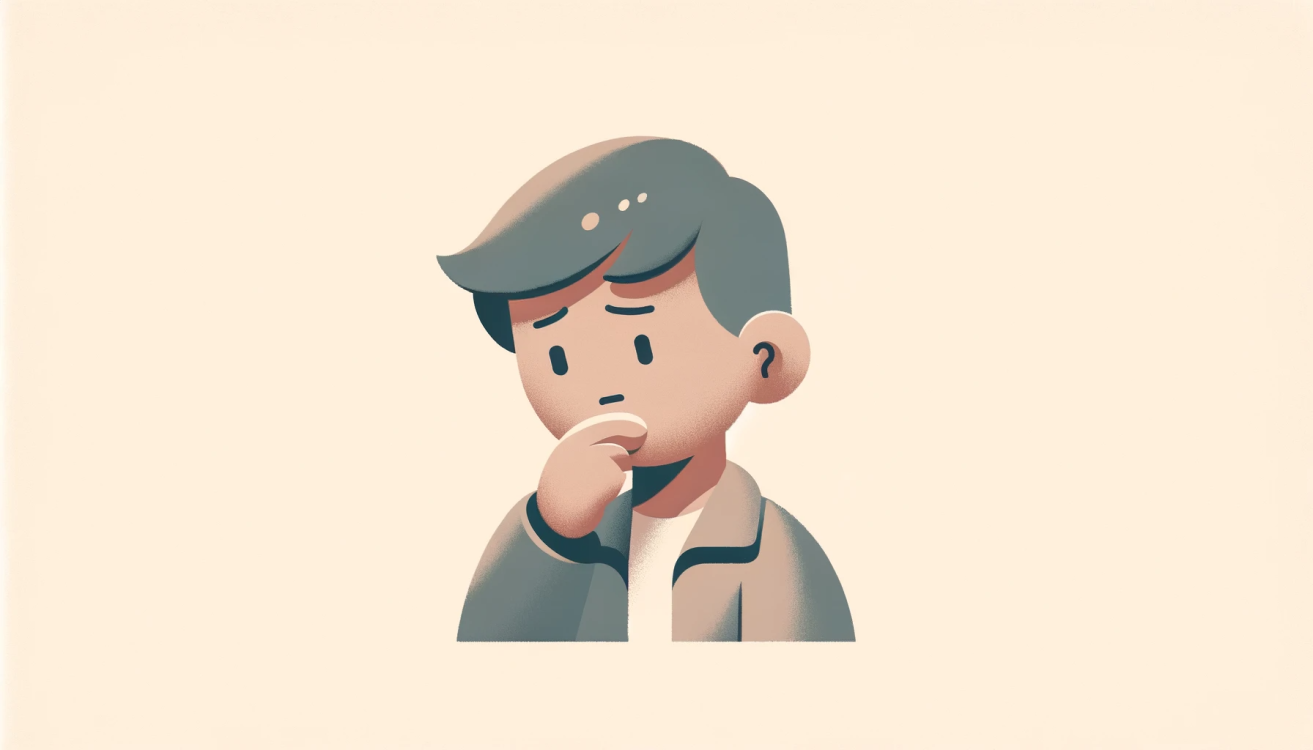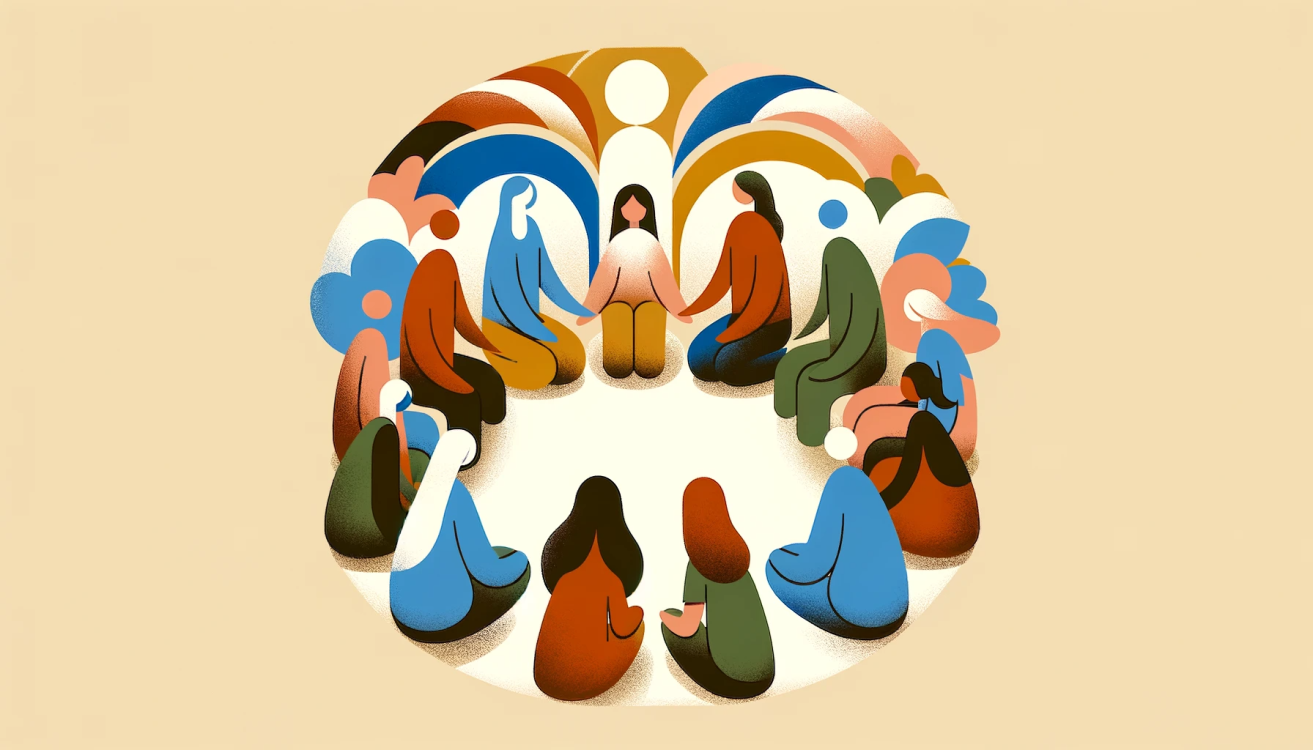When Therapy Doesn't Work: The Signs & What to Do Next
Rod Mitchell, MSc, MC, Registered Psychologist

Introduction
Sometimes, therapy feels like wandering through a labyrinth; you take many turns hoping to find your way, but you end up lost and giving up. If you're reading this, you might be experiencing a sense of stagnation in your therapy journey. A gnawing doubt may have crept in, whispering "what if therapy doesn't work?"
It's a crossroad many of us face, and it's important to know that navigating these challenges is part of the therapy process. In this guide, you'll discover how to recognize the signs that therapy is not working, and you'll learn the empowering steps you can take to correct the course of your mental health journey.
Key takeaways from this article:
| Topic | Description |
|---|---|
| Identifying When Therapy Needs a Reboot | Learn to recognize the signs that your current therapy may not be working, such as lack of progress and feeling disconnected. |
| Effective Strategies for Communicating with Therapists | Discover how to effectively communicate your needs and feedback to your therapist for a more tailored and effective therapeutic experience. |
| Exploring Diverse Therapy Options | Understand the importance of exploring different therapy types to find the one that best aligns with your individual needs and goals. |
| Navigating the Decision to Change Therapists | Gain insight into when and how to consider switching therapists, ensuring a smooth transition and continuity in your therapeutic journey. |
| Embracing Self-Care and Alternative Support Networks | Learn about the critical role of self-care and the benefits of seeking support beyond individual therapy, such as through support groups and community resources. |
Recognizing the Signs That Therapy Is Not Working
When we begin therapy, we often carry a hopeful expectation that each session will bring us closer to our goals. However, progress is not always linear, and there are moments when we might feel stuck. Recognizing the signs when therapy is not yielding desired results is crucial. Perhaps you've stopped experiencing new insights, or your symptoms haven't improved over several sessions. Maybe the strategies discussed in therapy don't transfer well to your daily life, or you simply don't feel heard or understood.
It's essential to approach these concerns with openness and self-compassion. Therapy is, after all, a journey that involves learning, unlearning, and relearning. It's also important to communicate your feelings and observations with your therapist - they are your ally in this voyage of self-discovery.
Signs Therapy May Need a Reboot:
- Feeling no improvement in emotional state
- Lack of new insights or progress
- Difficulty applying therapy insights in real life
- Sessions no longer feel challenging or engaging
What Happens if Therapy Doesn't Help?
When therapy doesn't seem to help, begin by addressing your concerns with your therapist and exploring adjustments or different therapeutic methods. If improvement remains limited, consider consulting friends, family, or your doctor for additional guidance. Switching therapists or incorporating complementary practices like yoga and journaling can also significantly enhance your therapy experience.

How to Have Constructive Conversations with Your Therapist
Feedback is the compass that guides the therapy journey. An open and honest dialogue about your therapy experience is essential. If something isn't working for you, or if you have suggestions, share them with your therapist. This feedback can help tailor the therapeutic process to better suit your needs and preferences, leading to a more fruitful outcome.
When providing feedback, focus on specific aspects like the pace of therapy, the methods used, or the areas of discussion that feel most productive. And remember, anger management strategies can be helpful when discussing frustrations; they ensure conversations remain constructive rather than confrontational.
Topics to Address in Therapy Feedback Sessions:
- The pace and direction of therapy
- Techniques or exercises that resonate with you
- Areas of your life you wish to focus more on during sessions
Taking Charge of Your Healing Journey
An integral part of a successful therapy experience is your own involvement in the process. Being an active participant in your healing journey can significantly enhance the effectiveness of therapy. This means being prepared for each session, engaging deeply with the content, and doing any homework assigned. It might involve exploring how your daily habits influence your mental health and taking steps to improve areas like sleep, diet, and exercise.
To truly reap the benefits of therapy, consider viewing it as a collaborative process. This collaboration with your therapist can make a world of difference as you address the challenge at hand. Engage with methods that can extend the therapeutic work outside of sessions, such as Cognitive Behavioral Therapy (CBT), known for its "homework" that encourages patients to apply strategies in real-world situations, thus reinforcing learning and behavioral changes.
Crucial Elements of Active Involvement in Therapy:
- Attending sessions consistently
- Completing assigned exercises and reflections
- Applying strategies outside of therapy
- Cultivating habits that support therapeutic goals
Finding the Right Type of Therapy for You
In the quest to realign your therapy experience, exploring various types of therapy can be a pivotal step. Each therapeutic approach is tailored to address specific issues and may resonate differently with individuals. It's worthwhile to delve into these options, considering what aligns best with your needs and interests. Discussing these with your therapist could open doors to incorporating a new methodology into your sessions, potentially reinvigorating your therapeutic journey.
Types of Therapy and Their Applications:
| Therapy Type | Description & Best For |
|---|---|
| Psychodynamic | Focuses on unconscious patterns and past influences, best for exploring deep-rooted issues. |
| Humanistic | Emphasizes personal potential and self-concept, suitable for personal growth and self-awareness. |
| Behavioral | Uses conditioning to modify behaviors, ideal for changing unhealthy behavior patterns. |
| CBT | Combines behavior therapy with cognitive psychology, effective for anxiety, depression, and mood disorders. |
Each modality addresses distinct aspects of well-being, catering to varied preferences and goals. From Cognitive Behavioral Therapy's structured approach to the more introspective nature of Psychodynamic therapy, the diversity in therapeutic styles ensures that there is a path for everyone. For a more in-depth dive into this topic, visit our article on finding the best therapy type for your unique journey.
When to Switch to a New Therapist
The right therapist can turn keys in your mind and heart, unlocking profound personal growth.
The therapeutic relationship is widely regarded as the cornerstone of effective therapy. A strong connection with your therapist can offer a solid foundation for your growth and development. This bond is characterized by trust, mutual respect, and the feeling that your therapist truly understands your experiences and challenges.
However, if the relationship with your current therapist isn't clicking, it might be beneficial to explore other options for finding a therapist in Calgary who better suits your needs. Finding the right fit is akin to matchmaking; when the chemistry is right, the potential for progress is vastly improved.
Changing therapists is a personal decision and one that should be made with careful consideration. It's not a failure but an act of self-care. Sometimes a different therapeutic approach or personality is what's needed to drive change. It's okay to advocate for your well-being and seek the support that resonates with you.
As part of evaluating your options, don't hesitate to ask about session rates. Understanding the financial aspect can help you make informed decisions about the investment in your mental health journey. Consult our guide on the cost of therapy in Calgary for more information.
Making the Change to a New Therapist Smoothly
Transitioning to a new therapist or approach can feel daunting, but with the right preparation, it can mark the beginning of a renewed therapeutic experience. It's all about taking the insights and progress you've made thus far and bringing them into a new context that may be better suited to your current needs.
Before making the transition, reflect on what you've learned from your current therapy, what worked well, and what you hope to achieve moving forward. Communicate these reflections to your new therapist to establish a clear foundation for future sessions. If you're seeking guidance on what to discuss during this change, we provide helpful tips on what to tell your therapist to ensure a smooth transition.
Frequently Asked Questions about Changing Therapists:
Preparation for transitioning to a new therapist involves introspection and organization. Reflect on your therapy journey so far, including your achievements, challenges, and areas of growth. It's also helpful to jot down your thoughts, feelings, and expectations for future therapy. Gathering any notes or materials from your current therapy can provide valuable context to your new therapist. This process of reflection and preparation will help you articulate your needs and goals more clearly.
To ensure continuity in your therapy goals, it's crucial to have a clear and concise summary of these objectives. Share your current therapy goals and progress with your new therapist. It might be beneficial to have a final session with your current therapist where you can discuss and document these goals together. This provides a roadmap for your new therapist, ensuring that your therapy journey remains focused and aligned with your aspirations.
When exploring a new therapeutic approach, consider what resonated with you in your previous therapy and what you felt was missing. Look for an approach that aligns with your personal values, therapy goals, and learning style. It’s also important to seek a therapist who creates a safe and supportive environment, and who demonstrates an understanding of your unique needs. Don’t hesitate to ask potential therapists about their methods, experience, and how they would address your specific concerns.
If you’re seeking to understand more about therapy options, we have curated a detailed guide on free and affordable therapy in Calgary. It’s tailored to help you navigate the diverse therapeutic landscape of Calgary, ensuring you find the support that best resonates with your personal journey.
Options Beyond Conventional Therapy
When traditional talk therapy doesn't seem to provide the solace or solutions you'd hoped for, consider navigating towards alternative therapies. There are various modalities available that cater to different healing styles, such as art therapy, which may allow self-expression beyond words, or animal-assisted therapy, which can provide comfort and support for those who connect with animals. Modalities like EMDR (Eye Movement Desensitization and Reprocessing) can be particularly effective for individuals dealing with trauma. It's about finding the path that aligns with your inner compass.
Comparison of Alternative Therapies:
| Therapy Type | Suitable For |
|---|---|
| Art Therapy | Individuals seeking creative outlets or emotional expression |
| EMDR | Those with specific traumatic experiences or PTSD |
| Animal-assisted Therapy | Animal lovers and those seeking non-verbal therapy for anxiety or depression |

The Role of Medication in Conjunction with Therapy
Sometimes, therapy alone might not be sufficient to address certain mental health challenges, and that’s okay. It's worth exploring the possibility of medication as a complement to the work done in therapy. Medications can play a critical role in balancing neurochemistry and providing relief from symptoms that otherwise might impede the therapeutic process.
It’s important to have an open conversation with your healthcare provider about the potential benefits and drawbacks of medication. While medication can be a powerful tool, it's only part of the solution; ongoing therapy is essential to address the underlying psychological and emotional factors. For those wondering how to find an ongoing therapy option that fits their budget, we have a comprehensive guide on free and affordable therapy in Alberta.
Key Points to Consider When Discussing Medication:
- Medication should be used in conjunction with therapy, not as a replacement.
- Involve a healthcare provider to monitor medication use and effectiveness.
- Medication can provide relief that allows therapy to work on deeper issues.
Assessing the Right Time for a Break
There can be a substantial benefit in taking a reflective pause from therapy when it feels like you're spinning your wheels. A break provides space to evaluate your journey so far, solidify the gains you've made, and decide on the next best steps. If you notice that you're rescheduling sessions more often, dreading appointments, or feeling drained rather than invigorated by the process, it may be time to consider a therapy hiatus.
Deciding when to take a break or whether to terminate therapy is a significant decision. It’s often helpful to discuss these feelings with your therapist, who can provide guidance. You may also want to explore stress management techniques as part of your contemplation to determine if external factors are influencing your therapy experience.
Frequently Asked Questions about Therapy Breaks:
Recognizing the need for a therapy break often comes from feelings of stagnation or burnout in your therapy sessions. If you're consistently rescheduling, feeling a sense of dread about your appointments, or not experiencing the rejuvenation and growth you used to, these could be signs it's time to pause. It's important to reflect on whether these feelings are temporary challenges or indicative of a deeper need for a break.
Before taking a break from therapy, consider the progress you've made and any goals that are still in progress. Reflect on what you hope to achieve during your break and set intentions for maintaining your mental health during this period. Discussing your thoughts with your therapist can provide clarity and help plan a break that serves your best interests. Also, consider if there are external stressors impacting your therapy experience, and if addressing them could change your perspective on continuing therapy.
Resuming therapy after a break involves reassessing your current emotional state and goals. Reach out to your therapist to discuss your experiences during the break and any new insights or challenges you've encountered. It's important to approach this return with openness and a willingness to continue your growth journey.

How External Factors Influence Therapy
As your world outside the therapy room changes, so should your approach within it.
The setting in which therapy unfolds is crucial, but we cannot ignore the myriad of external factors impacting our journey. Stressful work environments, personal relationships, or even global events like a pandemic can affect the reflective space therapy provides. Recognizing and addressing these external factors is key to making therapy as effective as possible.
By embracing a holistic perspective on your life, you can better navigate the challenges you face. It could be as simple as implementing stress-reduction techniques, like those taught in mental health workshops, or as complex as restructuring your work-life balance. Communication with your therapist about these factors is paramount, as they can adjust your therapy plan to better suit your needs.
The Importance of Self-Care and Self-Compassion
Central to therapeutic success is the practice of self-care and self-compassion. These are the arms that cradle your progress and foster resilience. Self-care involves all the intentional actions you take to care for your physical, mental, and emotional health. In parallel, self-compassion is about treating yourself with the same kindness and understanding you would offer to a good friend — especially on the days when therapy feels particularly challenging.
By developing routines centered on self-care, you create a supportive environment for the work done in therapy sessions. Taking regular breaks, engaging in enjoyable activities, and practicing mindfulness are all examples of how you can nourish your well-being.
Self-care Practices to Cultivate Alongside Therapy:
- Regular physical activity for body and mind health
- Mindfulness and meditation to center thoughts
- Nourishing diet that supports overall vitality
- Adequate rest and sleep for recovery and mental clarity
Seeking Support Networks Beyond Individual Therapy
Finding strength in others' stories encourages us to keep writing our own.
While individual therapy offers a private space to work through personal challenges, sometimes the collective energy of a group or community can bring new depths to the healing process. Support groups, whether related to specific issues like grief or more general mental health challenges, provide camaraderie and a feeling of not being alone in your struggles. There’s immense power in shared experiences and collective wisdom.
Engaging with others who understand your situation can complement the work of individual therapy sessions. Consider attending an anxiety counselling group or a workshop on psychological well-being to enhance your support network. These groups can offer new perspectives and remind you that your journey is both personal and part of a larger human experience.

Personal Development and Growth Outside Therapy Sessions
A warm image showcasing a diverse group of people forming a support circle, sharing and listening in an atmosphere of empathy and understanding.
Embarking on a path to personal growth involves more than just attending therapy sessions. It encompasses the development of oneself through various activities and practices outside the therapeutic space. Engaging in lifelong learning, pursuing hobbies, and finding passion in meaningful work or volunteer opportunities can all contribute to a more balanced and fulfilling life.
These activities provide a sense of accomplishment and purpose, which in turn can reinforce the work you do in therapy. It’s part of treating yourself as a whole — beyond the confines of a therapy room. Tools and insights gained during sessions can be applied in real-world scenarios, creating a feedback loop that drives personal growth. To this end, consider the insights of professionals such as Registered Psychologists, who advocate for holistic well-being.
Suggested Activities for Personal Growth:
- Engage in cultural activities or learn a new language.
- Volunteer for causes that resonate with you to build empathy and perspective.
- Develop new skills through courses or workshops to enhance self-efficacy.
Conclusion
The journey through therapy is as unique as the individuals who walk its path. At times, the road seems clear and straightforward, while at other moments, it may feel confused and uncertain. What holds true across all experiences is the necessity for perseverance and patience. The act of seeking therapy is, in itself, a profound statement of hope and belief in the possibility of change.
If you find yourself questioning the effectiveness of your current therapy, consider this article a signpost pointing towards the numerous routes available to you. Remember that Therapy Calgary Emotions Clinic is here to support you at every intersection. For personalized guidance, do not hesitate to book a free 20-minute consultation.
Frequently Asked Questions
If you feel that your therapy isn't yielding the desired results, it's important to first discuss these concerns with your therapist. Open communication can often lead to adjustments in your therapy approach. Additionally, consider journaling your therapy experiences to better understand your feelings and progress. Reflecting on your expectations and being open to different therapy modalities or techniques can also be beneficial. At Therapy Calgary Emotions Clinic, we can guide you in evaluating your therapy journey and exploring other potential paths.
Recognizing the need for a change in therapy modality often comes from a sense of stagnation or lack of progress in your current approach. Listen to your instincts – if you feel that something is missing or not quite clicking, it might be time to explore other options. Each therapy modality offers different techniques and perspectives, and finding the right fit is crucial for effective therapy. We encourage you to reach out for a consultation where we can discuss different modalities that might better align with your emotional and therapeutic needs.
Absolutely. Joining a support group or participating in workshops can complement your individual therapy sessions. These group settings offer unique perspectives and support from others who might be experiencing similar challenges. They can provide a sense of community and shared understanding that enriches your personal therapy journey. At Therapy Calgary Emotions Clinic, we offer various group therapy options and workshops tailored to different emotional challenges, providing an added layer of support and learning.
